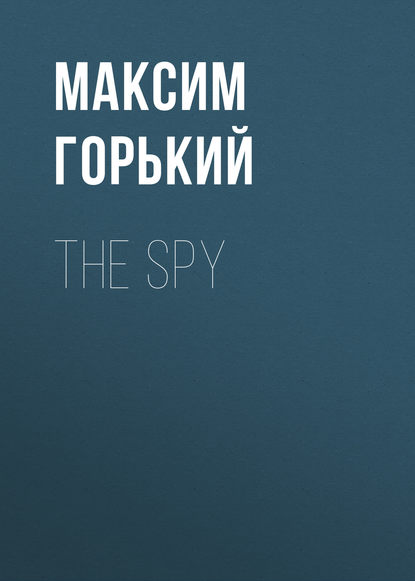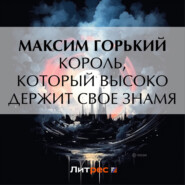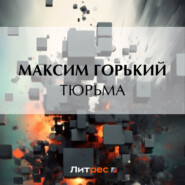По всем вопросам обращайтесь на: info@litportal.ru
(©) 2003-2024.
✖
The Spy
Настройки чтения
Размер шрифта
Высота строк
Поля
"I am not fit for this work."
"Why?" asked Maklakov.
"I am timid."
"That'll pass away."
"Nothing will pass away."
"Everything," rejoined Maklakov calmly.
It was cold and dark, and sleet was falling. The reflections of the lights lay upon the mud in golden patches, which the people and horses tramped upon and extinguished. The two men were silent for a long time. Yevsey, his brain empty, looked into space, and felt that Maklakov was watching his face, in wait for something.
"You'll get used to it," Maklakov went on, "but if you have another position, leave it at once. Have you?"
"No."
"Is it long since you've been in the Department of Safety?"
"Yesterday."
"That accounts for it."
"Now where am I to go?" inquired Yevsey quietly.
Maklakov instead of replying to the question asked:
"Have you relatives?"
"No. I have no one."
The spy leaned over, though without saying anything. His eyes were half shut. As he drew his breath through his nose, the thin hair of his mustache quivered. The thick sounds of a bell floated in the air, soft and warm, and the pensive song of copper crept mournfully over the roofs of the houses without rising under the heavy cloud that covered the city with a solid dark canopy.
"To-morrow is Sunday," said Maklakov in a low tone. "Do you go to church?"
"No."
"Why not?"
"I don't know. Just so. It's close there."
"I do. I love the morning service. The choristers sing, and the sun looks through the windows. That is always good."
Maklakov's simple words emboldened Yevsey. He felt a desire to speak of himself.
"It is nice to sing," he began. "When I was a little boy I sang in the church in our village. When I sang I didn't know where I was. It was just the same as if I didn't exist."
"Here we are," said Maklakov.
Yevsey sighed, and looked sadly at the long structure of the railway station, which all of a sudden loomed up before them and barred the way.
They went to the platform where a large public had already gathered, and leaned up against the wall. Maklakov dropped his lids over his eyes, and seemed to be falling into a doze. The spurs of the gendarmes began to jingle, a well-shaped woman with dark eyes and a swarthy face laughed in a resonant young voice.
"Remember the woman there who is laughing and the man beside her," said Maklakov in a distinct whisper. "Her name is Sarah Lurye, an accoucheure. She lives in the Sadovoy, No. 7, She was in prison and in exile, a very clever woman. The old man is also a former exile, a journalist."
Suddenly Maklakov seemed to become frightened. He pulled his hat down over his face with a quick movement of his hand, and continued in a still lower voice:
"The tall man in the black suit and the shaggy hat, red-haired, do you see him?"
Yevsey nodded his head.
"He's the author Mironov. He has been in prison four times already, in different cities. Do you read books?"
"No."
"A pity. He writes interestingly."
The black iron worm with a horn on its head and three fiery eyes uttered a scream, and glided into the station, the metal of its huge body rumbling. It stopped, and hissed spitefully, filling the air with its thick white breath. The hot steamy odor knocked Yevsey in the face. The black bustling figures of people quickly darted before his eyes, seeming strangely small in contrast with the overwhelming size of the train.
It was the first time Yevsey had seen the mass of iron at such close range. It seemed alive and endowed with feeling. It attracted his attention powerfully, at the same time arousing a hostile, painful premonition. The large red wheels turned, the steel lever glittered, rising and falling like a gigantic knife. Maklakov utter a subdued exclamation.
"What is it?" asked Yevsey.
"Nothing," answered the spy vexed. His cheeks reddened, and he bit his lips. By his look Yevsey guessed that he was following the author, who was walking along without haste, twirling his mustache. He was accompanied by an elderly, thick-set man, with an unbuttoned coat and a summer hat on a large head. This man laughed aloud, and exclaimed as he raised his bearded red face:
"You understand? I rode and rode – "
The author lifted his head, and bowed to somebody. His head was smoothly shorn, his forehead lofty. He had high cheek bones, a broad nose, and narrow eyes. Klimkov found his face coarse and disagreeable. There was something military and harsh in it, due to his large red mustache.
"Come," said Maklakov. "They will probably go together. You must be very careful. The man who just arrived is an experienced man."
In the street they took a cab again.
"Follow that carriage," Maklakov said angrily to the driver. He was silent for a long time, sitting with bent back and swaying body. "Last year in the summer," he finally muttered, "I was in his house making a search."
"The writer's house?" asked Yevsey.
"Yes. Drive on farther," Maklakov ordered quickly noticing that the cab in front had stopped. "Quick!"
A minute later he jumped from the cab, and thrust some money into the driver's hand.
"Wait," he said to Yevsey, and disappeared in the damp darkness. Yevsey heard his voice. "Excuse me, is this Yakovlev's house?"
Someone answered in a hollow voice:
"This is Pertzev's."
"And which is Yakovlev's?"
"Why?" asked Maklakov.
"I am timid."
"That'll pass away."
"Nothing will pass away."
"Everything," rejoined Maklakov calmly.
It was cold and dark, and sleet was falling. The reflections of the lights lay upon the mud in golden patches, which the people and horses tramped upon and extinguished. The two men were silent for a long time. Yevsey, his brain empty, looked into space, and felt that Maklakov was watching his face, in wait for something.
"You'll get used to it," Maklakov went on, "but if you have another position, leave it at once. Have you?"
"No."
"Is it long since you've been in the Department of Safety?"
"Yesterday."
"That accounts for it."
"Now where am I to go?" inquired Yevsey quietly.
Maklakov instead of replying to the question asked:
"Have you relatives?"
"No. I have no one."
The spy leaned over, though without saying anything. His eyes were half shut. As he drew his breath through his nose, the thin hair of his mustache quivered. The thick sounds of a bell floated in the air, soft and warm, and the pensive song of copper crept mournfully over the roofs of the houses without rising under the heavy cloud that covered the city with a solid dark canopy.
"To-morrow is Sunday," said Maklakov in a low tone. "Do you go to church?"
"No."
"Why not?"
"I don't know. Just so. It's close there."
"I do. I love the morning service. The choristers sing, and the sun looks through the windows. That is always good."
Maklakov's simple words emboldened Yevsey. He felt a desire to speak of himself.
"It is nice to sing," he began. "When I was a little boy I sang in the church in our village. When I sang I didn't know where I was. It was just the same as if I didn't exist."
"Here we are," said Maklakov.
Yevsey sighed, and looked sadly at the long structure of the railway station, which all of a sudden loomed up before them and barred the way.
They went to the platform where a large public had already gathered, and leaned up against the wall. Maklakov dropped his lids over his eyes, and seemed to be falling into a doze. The spurs of the gendarmes began to jingle, a well-shaped woman with dark eyes and a swarthy face laughed in a resonant young voice.
"Remember the woman there who is laughing and the man beside her," said Maklakov in a distinct whisper. "Her name is Sarah Lurye, an accoucheure. She lives in the Sadovoy, No. 7, She was in prison and in exile, a very clever woman. The old man is also a former exile, a journalist."
Suddenly Maklakov seemed to become frightened. He pulled his hat down over his face with a quick movement of his hand, and continued in a still lower voice:
"The tall man in the black suit and the shaggy hat, red-haired, do you see him?"
Yevsey nodded his head.
"He's the author Mironov. He has been in prison four times already, in different cities. Do you read books?"
"No."
"A pity. He writes interestingly."
The black iron worm with a horn on its head and three fiery eyes uttered a scream, and glided into the station, the metal of its huge body rumbling. It stopped, and hissed spitefully, filling the air with its thick white breath. The hot steamy odor knocked Yevsey in the face. The black bustling figures of people quickly darted before his eyes, seeming strangely small in contrast with the overwhelming size of the train.
It was the first time Yevsey had seen the mass of iron at such close range. It seemed alive and endowed with feeling. It attracted his attention powerfully, at the same time arousing a hostile, painful premonition. The large red wheels turned, the steel lever glittered, rising and falling like a gigantic knife. Maklakov utter a subdued exclamation.
"What is it?" asked Yevsey.
"Nothing," answered the spy vexed. His cheeks reddened, and he bit his lips. By his look Yevsey guessed that he was following the author, who was walking along without haste, twirling his mustache. He was accompanied by an elderly, thick-set man, with an unbuttoned coat and a summer hat on a large head. This man laughed aloud, and exclaimed as he raised his bearded red face:
"You understand? I rode and rode – "
The author lifted his head, and bowed to somebody. His head was smoothly shorn, his forehead lofty. He had high cheek bones, a broad nose, and narrow eyes. Klimkov found his face coarse and disagreeable. There was something military and harsh in it, due to his large red mustache.
"Come," said Maklakov. "They will probably go together. You must be very careful. The man who just arrived is an experienced man."
In the street they took a cab again.
"Follow that carriage," Maklakov said angrily to the driver. He was silent for a long time, sitting with bent back and swaying body. "Last year in the summer," he finally muttered, "I was in his house making a search."
"The writer's house?" asked Yevsey.
"Yes. Drive on farther," Maklakov ordered quickly noticing that the cab in front had stopped. "Quick!"
A minute later he jumped from the cab, and thrust some money into the driver's hand.
"Wait," he said to Yevsey, and disappeared in the damp darkness. Yevsey heard his voice. "Excuse me, is this Yakovlev's house?"
Someone answered in a hollow voice:
"This is Pertzev's."
"And which is Yakovlev's?"

















